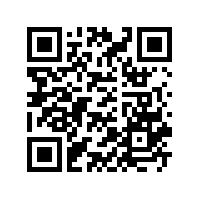Help
How to Use a Blockchain Explorer
It seems you're looking for information on blockchain explorers, their uses, and examples for various cryptocurrencies. Let me provide a detailed explanation and address each of your points:
### What is a Blockchain Explorer?
A blockchain explorer is an online tool that allows users to view and analyze data on a blockchain. It's essentially a search engine for blockchain transactions. With a blockchain explorer, you can:
- View transaction histories and details.
- Check the status of individual transactions.
- Look up wallet balances and the number of transactions made from a particular wallet.
- Explore the number of blocks in the blockchain, the size of individual blocks, and the time between blocks.
### Uses of Blockchain Explorers
Blockchain explorers are useful for:
1. **Verifying Transactions**: You can confirm whether a transaction has been processed by the network.
2. **Analyzing Wallet Addresses**: You can see the balance of a wallet and its transaction history.
3. **Monitoring Blockchain Activity**: You can keep track of the number of blocks, the time it takes to mine a block, and other network statistics.
### How to Use a Blockchain Explorer
To use a blockchain explorer, you typically need a transaction ID or a wallet address. Enter this information into the search bar of the explorer, and it will display the relevant data.
### Common Blockchain Explorers
Here are some well-known blockchain explorers for various cryptocurrencies:
- **Bitcoin (BTC)**:
- https://btc.com
- https://blockchain.info
- https://www.blockchain.com/explorer
- https://blockchair.com/bitcoin
- **Ethereum (ETH)**:
- https://etherscan.io
- https://blockchair.com/ethereum
- https://www.etherchain.org/
- **Litecoin (LTC)**:
- https://ltc.ihashrate.com
- https://blockchair.com/litecoin
- **Bitcoin Cash (BCH)**:
- https://bch.btc.com
- https://blockchair.com/bitcoin-cash
- **Bitcoin SV (BSV)**:
- https://blockchair.com/bitcoin-sv
- **EOS**:
- https://eosflare.io
- https://eospark.com
- **TRON (TRX)**:
- https://tronscan.org
- **Dogecoin (DOGE)**:
- https://dogechain.info/
- https://blockchair.com/dogecoin
- **Dash (DASH)**:
- https://blockchair.com/dash
- **Ethereum Classic (ETC)**:
- https://gastracker.io/
### Security and Trustworthiness
Blockchain explorers are generally secure as they only provide read-only access to the blockchain data. However, it's important to:
- **Verify URLs**: Ensure you're using the correct and secure website for the blockchain explorer.
- **Be Cautious with Phishing**: Never enter your private keys or mnemonic phrases on any site unless you are absolutely sure it's legitimate.
### Additional Considerations
- **Privacy**: Sharing transaction IDs or wallet addresses can reveal transaction history and balances, which may compromise privacy.
- **Multiple Sources**: If you suspect an explorer is showing incorrect data, cross-reference with other explorers.
- **Development**: Not all blockchains have an explorer, and some may be developed by the project team or community members.
Blockchain explorers are invaluable tools for anyone using cryptocurrencies, providing transparency and insight into the workings of blockchain networks.
### What is a Blockchain Explorer?
A blockchain explorer is an online tool that allows users to view and analyze data on a blockchain. It's essentially a search engine for blockchain transactions. With a blockchain explorer, you can:
- View transaction histories and details.
- Check the status of individual transactions.
- Look up wallet balances and the number of transactions made from a particular wallet.
- Explore the number of blocks in the blockchain, the size of individual blocks, and the time between blocks.
### Uses of Blockchain Explorers
Blockchain explorers are useful for:
1. **Verifying Transactions**: You can confirm whether a transaction has been processed by the network.
2. **Analyzing Wallet Addresses**: You can see the balance of a wallet and its transaction history.
3. **Monitoring Blockchain Activity**: You can keep track of the number of blocks, the time it takes to mine a block, and other network statistics.
### How to Use a Blockchain Explorer
To use a blockchain explorer, you typically need a transaction ID or a wallet address. Enter this information into the search bar of the explorer, and it will display the relevant data.
### Common Blockchain Explorers
Here are some well-known blockchain explorers for various cryptocurrencies:
- **Bitcoin (BTC)**:
- https://btc.com
- https://blockchain.info
- https://www.blockchain.com/explorer
- https://blockchair.com/bitcoin
- **Ethereum (ETH)**:
- https://etherscan.io
- https://blockchair.com/ethereum
- https://www.etherchain.org/
- **Litecoin (LTC)**:
- https://ltc.ihashrate.com
- https://blockchair.com/litecoin
- **Bitcoin Cash (BCH)**:
- https://bch.btc.com
- https://blockchair.com/bitcoin-cash
- **Bitcoin SV (BSV)**:
- https://blockchair.com/bitcoin-sv
- **EOS**:
- https://eosflare.io
- https://eospark.com
- **TRON (TRX)**:
- https://tronscan.org
- **Dogecoin (DOGE)**:
- https://dogechain.info/
- https://blockchair.com/dogecoin
- **Dash (DASH)**:
- https://blockchair.com/dash
- **Ethereum Classic (ETC)**:
- https://gastracker.io/
### Security and Trustworthiness
Blockchain explorers are generally secure as they only provide read-only access to the blockchain data. However, it's important to:
- **Verify URLs**: Ensure you're using the correct and secure website for the blockchain explorer.
- **Be Cautious with Phishing**: Never enter your private keys or mnemonic phrases on any site unless you are absolutely sure it's legitimate.
### Additional Considerations
- **Privacy**: Sharing transaction IDs or wallet addresses can reveal transaction history and balances, which may compromise privacy.
- **Multiple Sources**: If you suspect an explorer is showing incorrect data, cross-reference with other explorers.
- **Development**: Not all blockchains have an explorer, and some may be developed by the project team or community members.
Blockchain explorers are invaluable tools for anyone using cryptocurrencies, providing transparency and insight into the workings of blockchain networks.




 Google down
Google down